Transferts monétaires sectoriels
Les transferts monétaires peuvent permettre aux personnes en situation de crise de répondre à leurs besoins liés à un secteur spécifique du domaine humanitaire, comme l’eau, l’alimentation, les abris, les moyens de subsistance ou la protection. Les transferts monétaires sectoriels peuvent être affectés ou non affectés, assortis ou non de conditions et ils sont généralement distribués dans le cadre d’options d’aides variées, qui peuvent inclure une aide en nature et une aide sous forme de services.
Chaque secteur doit réfléchir à plusieurs questions et prendre en compte les difficultés, avantages et risques au moment de soutenir la reprise économique des bénéficiaires dans son domaine d’expertise. Ce travail implique de disposer de données probantes, d’outils, de directives et de capacités. Atteindre les objectifs spécifiques à un secteur par le biais des transferts monétaires requiert également une compréhension multisectorielle des besoins et de ce qui constitue la sécurité économique des ménages ; voir la page Transferts monétaires à usages multiples. Alors qu’il existe dans certains secteurs une longue expérience de la mise en œuvre des transferts monétaires, d’autres se tournent tout juste vers cette modalité. La plupart des secteurs humanitaires se sont engagés dans cette voie et ont redoublé d’efforts pour mettre en place des transferts monétaires sectoriels. Le groupe mondial de coordination des clusters coordonne également le travail inter-clusters afin d’accroître l’utilisation sectorielle des transferts monétaires.
Priorités actuelles
Le CALP Network travaille en étroite collaboration avec les groupes techniques/groupes de travail sur les transferts monétaires au sein des clusters mondiaux, qui ont défini leurs priorités et plans de travail pour 2020 lors de leurs réunions régulières. Une vue d’ensemble générale et des détails spécifiques sur ces priorités dans chaque cluster mondial est disponible ici.
Thematic lead
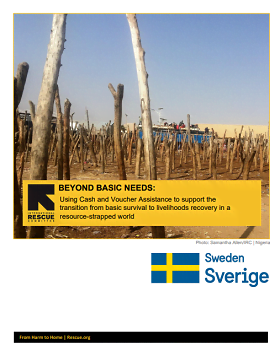
Beyond Basic Needs: Using Cash and Voucher Assistance to Support the Transition from Basic Survival to Livelihoods Recovery in a Resource-Strapped World
Guidelines and Tools
Do you think of yourself as a “cash” person OR as a “livelihoods” person? An “emergency” practitioner OR a “recovery” practitioner? Or do you find yourself unsatisfied with the often narrow implications of these terms? We’ll never have enough funding to provide basic needs support to everyone who needs it for the entire time they are in need, even if we take advantage of the...

Looking into 2020: short overview on global clusters, CVA and the CALP Network
Presentation
Overview as 2020 begins:
• Significant progress and commitment from all global clusters on integration of CVA into their work.
• Significant interest in different regions and by some donors on sector-specific CVA.
• Challenges that remain:
o Dialogue: 1) Ensuring CVA specialists understand sector specificities and successfully bank on the technical expertise emanating...

Building Evidence to inform the Effective Use of CASH and Voucher Assistance in Emergency Sanitation and Hygiene Programming
Report
An analysis of 5 case studies of utilization of CASH/Voucher Assistance are presented and analysed in the attempt of building evidence on their utilization in emergency WASH Sanitation and HP programming. Findings and recommendations are provided on Coordination, Situation and Response Analysis, Program Design, Implementation, Monitoring and Evaluation.
Contenu récent

Egypt Cash and Voucher Assistance (CVA) and Child Labor: Program Summary and Evidence-Building Infographic
Case Study
This infographic highlights the main findings and achievements of Save the Children CVA operations in Egypt between March 2023 and November 2023, which aimed to assess and highlight the impact that CVA has on child protection outcomes, with a specific focus on unaccompanied and separated refugee children...

Philippines Cash and Voucher Assistance (CVA) and Child Early and Forced Marriages and Unions (CEFMU): Program Summary and Evidence-Building Infographic
Case Study
This infographic gathers key programmatic data from Save the Children CVA operations in the Philippines between January and August 2023, which aimed to assess and highlight the impact that CVA has on child protection outcomes, with a specific focus on Child Early and Forced Marriages and Unions (CEFMU).

Lithuania Cash and Voucher Assistance (CVA) for Child Protection (CP): Program Summary and Evidence-Building Infographic
Case Study
This infographic gathers key programmatic data from Save the Children CVA operations in Lithuania, within the larger context of the Ukrainian crisis, between December 2022 and April 2023, which aimed to assess and highlight the impact that CVA has on child protection outcomes, with a specific focus on...

Community Insight Survey for Cash-Based Programs in Afghanistan
Case Study
The Community Insight Survey for Cash-Based Programs by iMMAP Inc. in Afghanistan provides critical insights into the effectiveness of cash-based humanitarian assistance in the country. Conducted across diverse regions of Afghanistan, the survey highlights the positive impact of cash assistance on...

Payment Solution Seekers Webinar
Webinar recording
This webinar marked the launch of the Payment solutions for CVA implementers report; which helps implementing organizations, payment companies and regulators leverage FinTech innovations to increase the impact of Cash and Voucher Assistance (CVA).
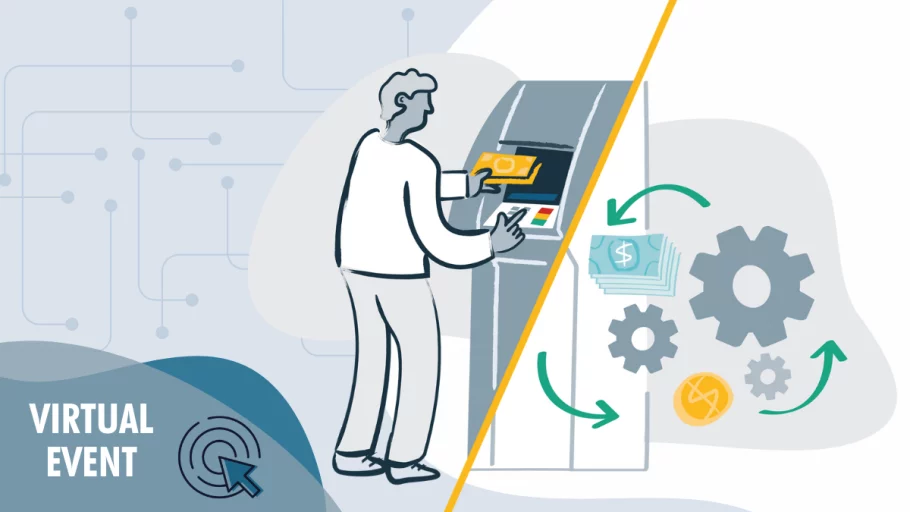
Payment solutions for CVA implementers
Event
Cash Voucher Assistance (CVA) implementers are turning to the latest financial technology (FinTech) to boost efficiency, maximize impact, and offer recipients a choice of delivery options.
This event marks the launch of CALP's latest research in this area, specifically examining how payment...
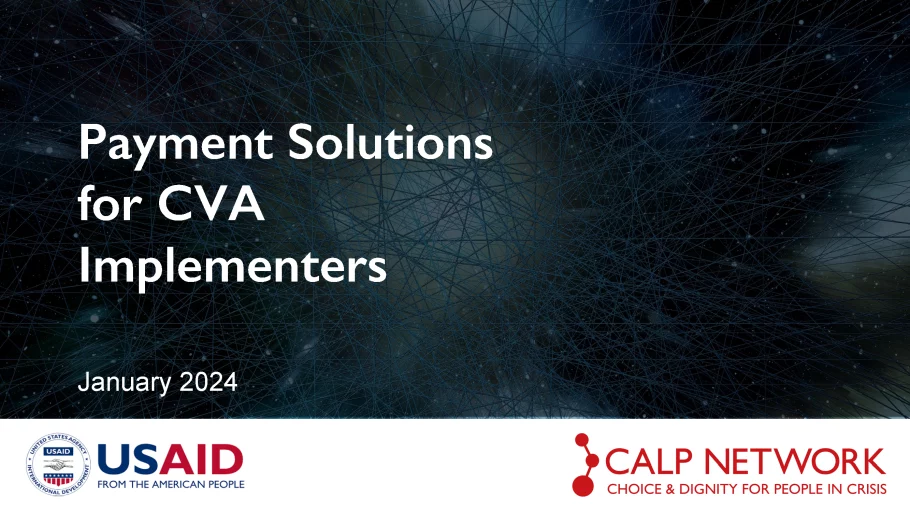
Payment Solutions for CVA Implementers
Report
This report explores how CVA implementers can leverage developments in payment technology to empower recipients, offering them a choice of CVA delivery mechanisms.

CALP Online: Core CVA Skills for Programme Staff – Key Aid Consulting
Members training

CALP CVA Climate & Environment CoP [Asia friendly time]
Members event
How to mitigate climate change in cash programming?

Table ronde régionale des Amériques – Réponses locales
Événement
Le CALP Network s’est engagé à soutenir les acteurs locaux pour qu’ils dirigent les réponses humanitaires, y compris la distribution des transferts monétaires (TM), et à soutenir le mouvement en faveur d’une réponse humanitaire centrée sur les personnes. Suite aux discussions mondiales et aux...

Humanitarian Cash and Voucher Assistance in the USA: learning and sharing together
Training
Objective To provide a once off space that facilitates exchange and learning for the actors implementing humanitarian Cash and Voucher Assistance (CVA) in the United States. We aim to provide an environment to share knowledge, experiences, and best practices to enhance the effectiveness of their...
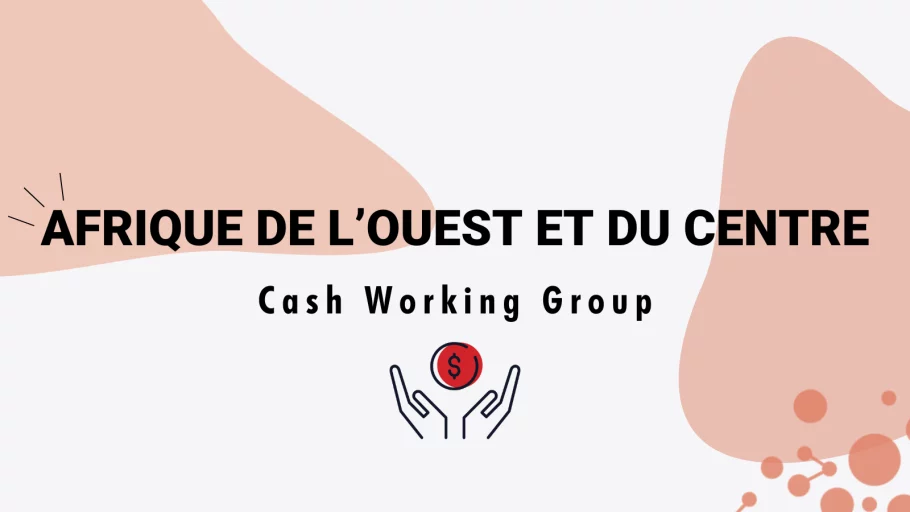
Cash Working Group régional – Afrique de l’Ouest et du Centre
Événement
Vous êtes cordialement invité(e)s à la prochaine réunion du Cash Working Group régional qui aura lieu le mercredi 17 janvier 2024, de 9h à 11h (GMT) en présentiel et en ligne La réunion se déroulera avec interprétation simultanée en anglais/français. Le draft de l’agenda proposé de la...

Compte-rendu et présentation du CWG régional – Afrique de l’Ouest et du Centre
Meeting minutes
Compte-rendu, présentation et enregistrement de la réunion régionale du groupe de travail sur les transferts monétaires du 17 janvier 2024. Regardez l’enregistrement ici :
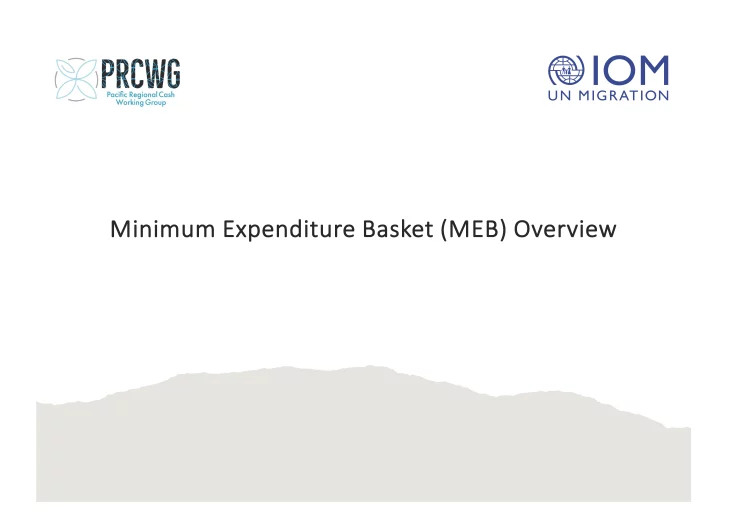
Minimum Expenditure Basket (MEB) Overview
Presentation
“The Minimum Expenditure Basket (MEB) is defined as what a household requires in order to meet basic needs – on a regular or seasonal basis – and its average cost.”

CALP CVA Climate & Environment CoP (Americas Friendly Time)
Members event
CVA, Environment and Climate Change Community of Practice 2024 webinar series
The global impacts of climate change and environmental degradation are real and pose a huge immediate and long-term threat. Multiple ongoing and complex crises underline the fact that climate change is, and will likely...
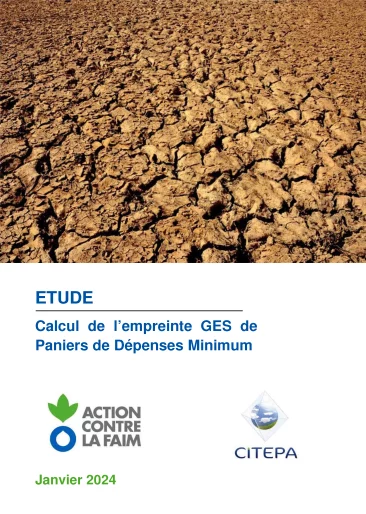
Calcul de l’empreinte GES de Paniers de Dépenses Minimum
Case Study
Début 2021, Action contre la Faim (ACF) France a lancé une évaluation des émissions de GES avec d’autres membres du Réseau Environnement Humanitaire (REH). La portée de la comptabilisation cible toutes les émissions, et très rapidement certaines activités, pouvant générer une variabilité...

US & Canada Community of Practice Meeting
Event
CALP will host a meeting with members of the US & Canada Community of Practice on Wednesday January 10th, 2024, from 14:00 to 15:30 (EST). The event will be hybrid (face to face and online) and held in English. The overall objective of meeting is to create a space for exchange for CVA actors working...

Cash For Education in Akkar
Report
This research aims to explore the effects of cash assistance on the ability of girls and boys in Akkar, Lebanon, to access and stay in education. It delves into the complex crisis in Lebanon, which involves economic decline, disruptions in education, and adverse impacts on vulnerable groups like girls and...
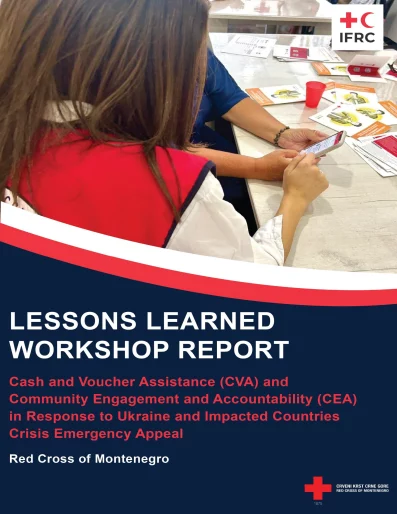
Lessons Learned Workshop Report: Cash and Voucher Assistance (CVA) and Community Engagement and Accountability (CEA) in Response to Ukraine and Impacted Countries Crisis Emergency Appeal
Report
Since the escalation of the conflict in Ukraine at the end of February 2022, approximately one-third of people from Ukraine have been displaced, leading to one of the largest displacement crises in the world. From the period of 24 February 2022 until 20 November 2023, 182,047 displaced people from Ukraine...

“Stop the war and let me return to my home, even if it is destroyed.” Community priorities and perceptions of aid and support in Gaza
Report
In early November, Ground Truth Solutions (GTS) and Arab World for Research and Development (AWRAD) set about talking to people in Gaza to find out what the humanitarian situation looked like from their perspective. Access challenges for large agencies are well known, but how have communities been...


